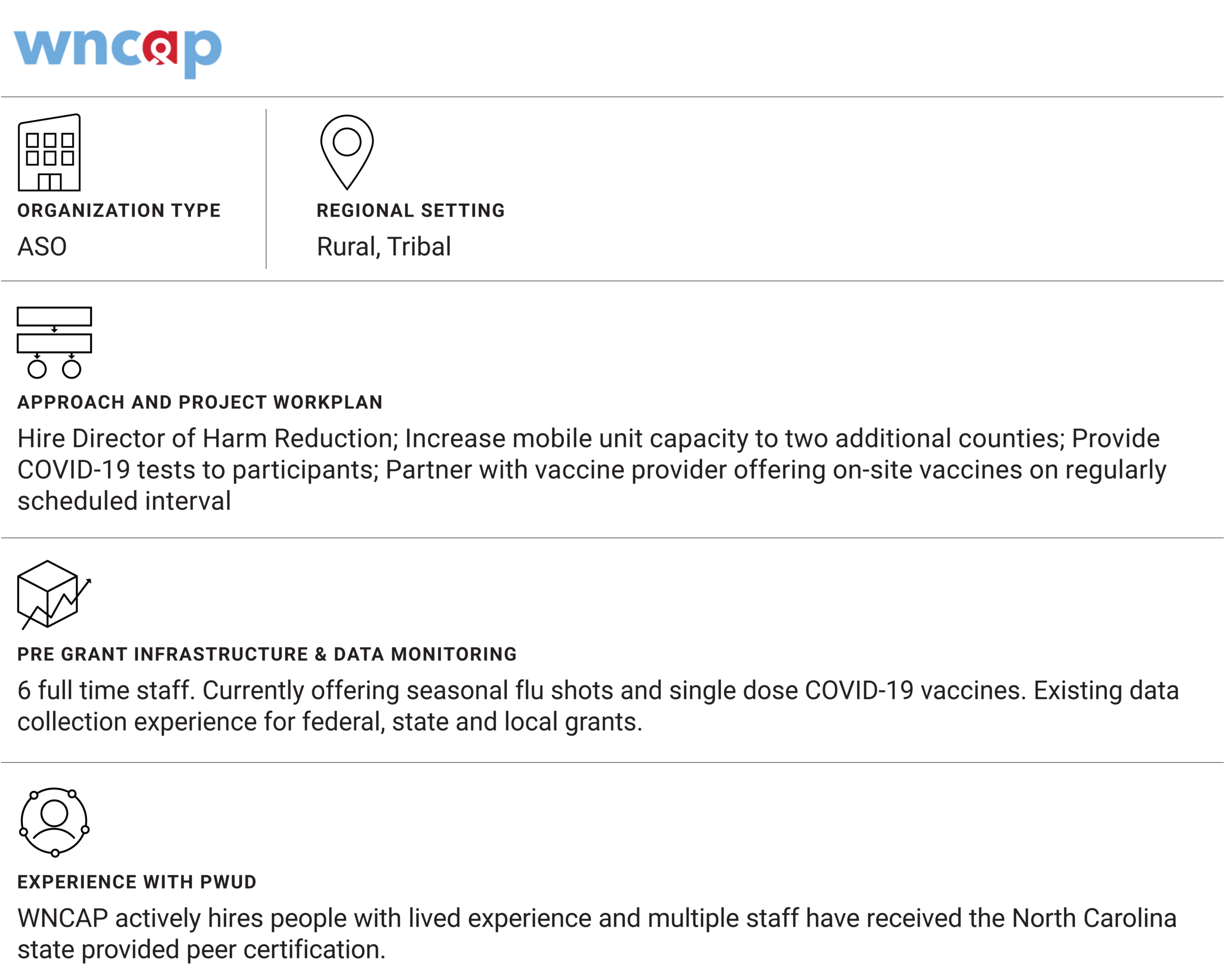Overview
An ASO serving 18 counties throughout western NC, WNCAP offers Harm Reduction services at their Asheville office fixed site (the most urban setting of WNCAP’s program sites), a Franklin storefront site, and in three rural counties via their mobile outreach van.
Creative Approaches
Vaccine Partnership
In order to offer vaccines for their participants, this program partnered with pharmacies as well as the health department to supply the vaccines while utilizing their strong rapport and relationships in the community to host vaccine events providing food and additional health services then hired staff to be ambassadors and give participants information about vaccines. WNCAP oversaw a fast and effective pivot towards MPOX vaccines to curb the spread through communities at risk preemptively, for their overlapping communities of PWUD and LGBT folks.
Prioritizing Harm Reduction
During the project, WNCAP demonstrated its commitment to Harm Reduction by promoting staff from their harm reduction program to fill the director of prevention role. Raymond Velazquez has shepherded an SSP through significant growth and program expansion and was a natural choice to direct the WNCAP prevention department, integrating harm reduction services and values throughout their services.
Adaptable Outreach
Providing fixed-site services in Asheville and mobile services in the surrounding counties is crucial for a region where many people live rurally and don’t have access to urban programs.
WNCAP also provides drug-checking services at each of its locations through a collaborative project with UNC. The service is lab-based, samples are collected from clients and sent to a partner organization that then provides the results back within a week. While this limits real-time information sharing, it does enable outreach staff to really tailor services for clients. In rural counties where they have seen xylazine begin entering the drug supply, they can adjust their outreach to include more wound care supplies, health education for keeping wounds clean and preventing soft tissue infections.
Challenges
Vaccine Supply Provision
The COVID mobilization streamlined the acquisition of COVID-19 vaccines, and crucially allowed for affordable acquisition, in the urban setting of Asheville. As the pandemic crisis began to subside, WNCAP's pharmacy partners were able to provide other free vaccinations most notably Mpox, and Hepatitis A and B. Unfortunately, WNCAP was not able to overcome the lack of culturally competent care and stigma in rural communities to provide the same services to program participants in the rural counties.
Stigma and Misinformation
Like many grantees, particularly in the South, misinformation around vaccines was widespread among community members. Additionally, pervasive institutional stigma made it challenging to expand vaccine provision into rural counties; this was true for both COVID as well as MPOX vaccines.
Total Monthly Data
|
Service |
Number of Encounters |
|
Received education on COVID and COVID vaccination |
7819 |
|
Referred to COVID vaccination |
1220 |
|
COVID-19 Vaccination (on-site) |
24 |
|
COVID-19 Vaccination (off-site) |
28 |
| Monkeypox vaccinations | 53 |
| Other vaccinations | 18 |
| Total encounters | 18314 |

